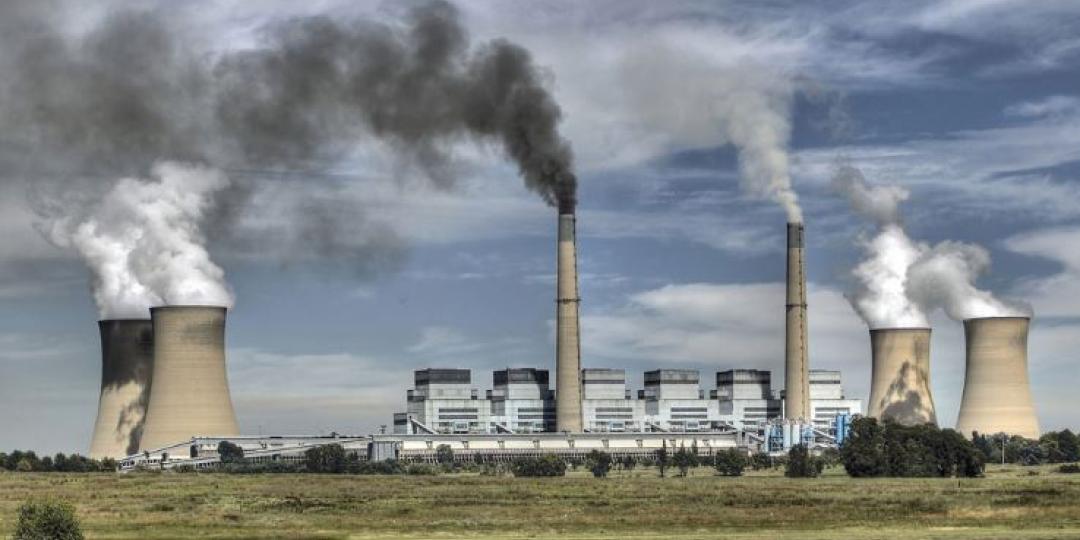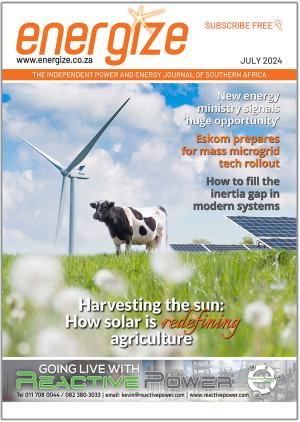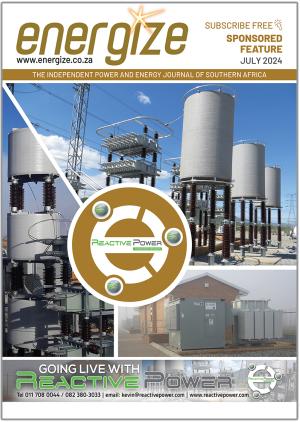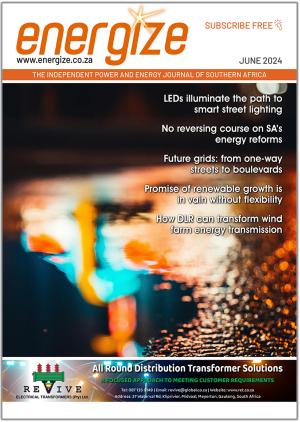Information from SANEDI
The International Energy Agency (IEA) – of which South Africa is an association country – recently released a report detailing a way forward for countries looking to achieve net-zero emissions by 2050 and thus give the world an even chance of limiting the global temperature rise to 1,5°C.
However, the recommended path to net-zero would be a tough one for South Africa to follow, considering our heavy reliance on coal. As the world prepares for the 2021 United Nations Climate Change Conference (COP26) taking place in Glasgow, Scotland in November 2021, South Africa must focus its efforts on tangible solutions for emission reductions.

“Given the current South African coal-dominated electricity generation context, the IEA milestone targets will prove a lot more difficult to achieve than most other countries,” says Lethabo Manamela, interim CEO of the South African National Energy Development Institute (SANEDI).
Amongst others, the report, Net Zero by 2050: A Roadmap for the Global Energy Sector, recommends that by 2030 all subcritical coal‐fired power plants must be phased out and, by 2050, global coal use must be 90% lower than in 2020.
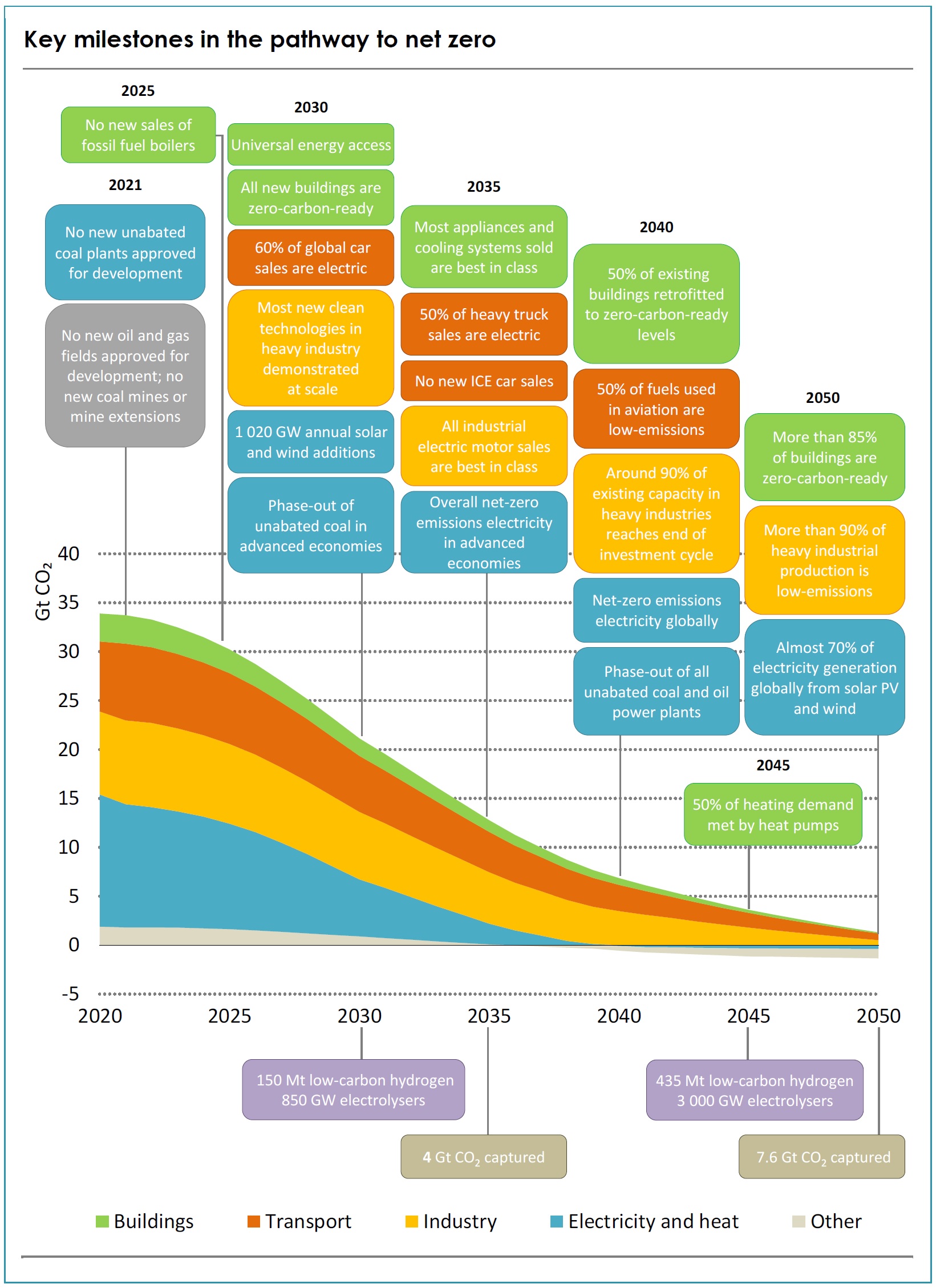
However, Manamela adds that there is reason for hope. “Recent signals from the State President, together with the Department of Mineral Resources and Energy (DMRE), other government ministries, Eskom and the private sector, shows a clear commitment by all the major decision makers to achieve this target.” She adds that this will, however, must take place within a Just Energy Transition (JET) framework, which appears to be gaining a lot of momentum in the country and is sure to be a big focus of COP26.
JET is crucial for South Africa’s sustainable and inclusive move towards cleaner energy practices. In this regard, last year saw the formation of the Presidential Climate Commission (PCC) which is mandated to coordinate and oversee the transition towards a low-carbon economy and society which considers our unique socio-economic landscape.
“The socio-economic situation in South Africa brings with it both a number of challenges, but also a lot of opportunities. That is why the emphasis placed on JET in South Africa is so important. The ‘new’ opportunities brought about by a transition to newer, more modern and clean technologies provide with it the opportunity to introduce many more innovative skills into the economy, which will go a long way in reducing the high unemployment levels, especially amongst the youth, and it can potentially get the economy moving in the right direction,” says Manamela. She adds that South Africa has many ‘good news’ initiatives in place to report on at COP26.
For example, Phase 2 of the Carbon Tax due for implementation in the beginning of 2023, will see a radically different carbon pricing regime that will accelerate the transition to a low carbon economy. Added to that, there is the envisaged growth in the Hydrogen Economy, which if successful, could see a major shift in the local energy landscape in the medium-term. In addition, SANEDI has been involved in the implementation of the recently gazetted regulations on Energy Performance Certificates (EPCs) for buildings, which will see building owners prioritising their energy efficiency initiatives in the coming years.
Finally, President Cyril Ramaphosa’s increase in the licence threshold for people to generate power from 1 MW to 100 MW is another step in the right direction.
“While the road to net-zero is sure to be a challenge for South Africa, we are up for this challenge. With many initiatives already in place, there is reason for hope as we work together to combat climate change. SANEDI looks forward to continuing its work in transforming our local energy sector to one which is sustainable, reliable and economically inclusive,” Manamela concludes.
About SANEDI
The South African National Energy Development Institute (SANEDI), established by Government, directs, monitors and conducts applied energy research to develop innovative, integrated solutions to catalyse growth and prosperity in the green economy. It drives scientific evidence-driven ventures that contribute to youth empowerment, gender equity, environmental sustainability and the fourth industrial revolution, within the National Development Plan (NDP), through consultative, sustainable energy projects.
Contact SANEDI, Tel 011 038-4302, information@sanedi.org.za, www.sanedi.org.za

